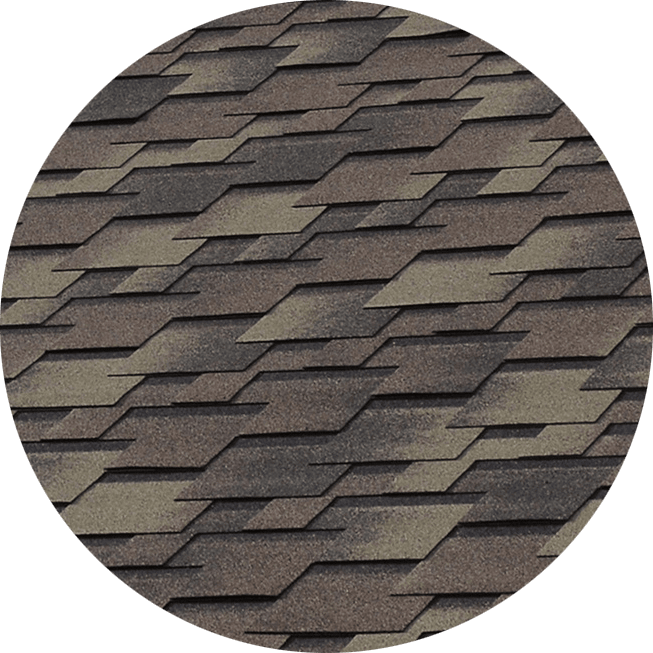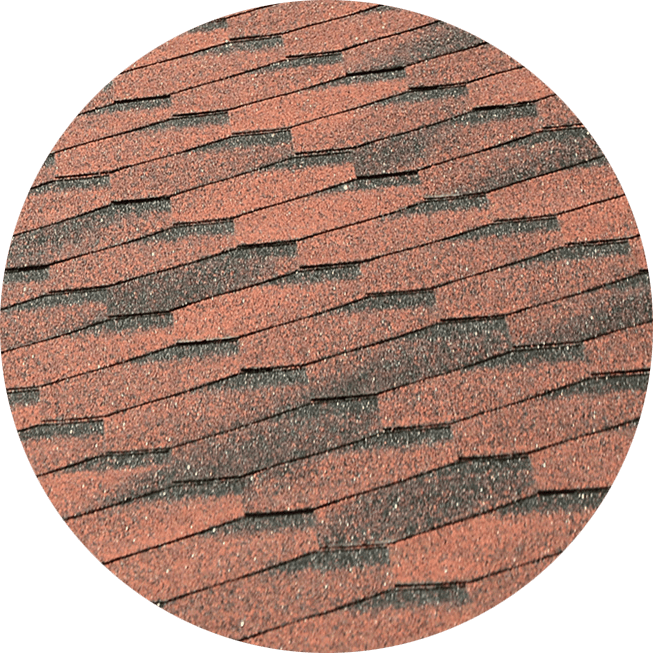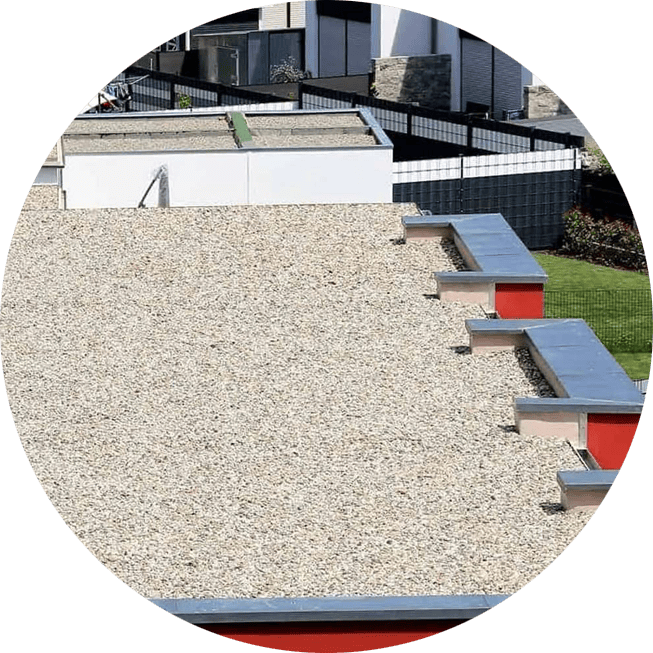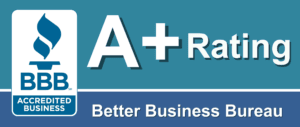Selecting the Right Roof Materials
A sound roof is a vital component of your business or home, and it all starts with the right type of roofing materials. Stonebridge Roofing is your friendly St. Louis neighborhood roofing contractor that can help you choose the right roof materials for your business or home’s roofing system.
Popular Roofing Material Options
Our professionals work with you to determine which materials are the right option for your roof. We’ll cover considerations like lifespan, the type of roof system you have, curb appeal, budget, and more, so that you can choose what works best for your unique situation.
Call us directly at (314) 834-7339 for a free estimate.
Metal roofing is an incredibly popular solution for commercial buildings, and for good reason: it’s relatively energy efficient (meaning lower energy costs), easy to maintain, and resistant to fire and water damage. Furthermore, some materials, like corrugated metal, are impact resistant, making them ideal for climates subject to damage from hail and debris due to high winds. For eco-friendly business owners, metal roofing—particularly standing seam metal roofs—is ideal for solar panel placement.
Benefits:
- Low maintenance
- Durable and long-lasting
- Fire resistant
Drawbacks:
- Material price
- Installation/labor cost
- Some metals may rust
Great For:
- Cool and hot climates
- Commercial buildings
Shingles are the quintessential roof material, and are widely used for both commercial and residential purposes. Shingle roofing’s popularity is due in large part to its cost effectiveness, ease of installation and repair, and variety. From redwood wood shingles to cedar wood shakes to fiberglass-reinforced asphalt roof shingles, there are no shortage of shingle roofing options available
Benefits:
- Cost effective
- Easy installation
- Easy to repair
- Recyclable
- Variety of colors
Drawbacks:
- Higher energy costs
- Shorter lifespan compared to other roofs
- Prone to blistering and mildew
Great For:
- Most climates
- Steep- and low-slope roofs
- Solar panel placement
Architectural asphalt shingles are a special type of asphalt shingle. Architectural shingles are multilayered, usually made with a thick fiberglass base mat, asphalt, and granules as well as strong adhesives. The superior construction of these shingles means that they can last for decades, sometimes upwards of 50 years.
Benefits:
- Longevity
- Cost effective
- Energy efficient
- Enhances curb appeal
Drawbacks:
- Complicated installation
- Higher installation costs
- Heavy material
Great For:
- Humid weather conditions
- Low- to moderate-slope roofs
- Solar panel placement
Tile roofing is another popular option for both commercial and residential properties. Like shingles, the strength of tile roofing lies in its versatility and variety. Popular types of roof tiles include:
- Clay tiles, which are weather resistant and durable
- Concrete tiles, which are great for solar panel placement
- Asphalt tiles, which are incredibly cost effective
- Slate tiles, which boast superior durability and longevity
Benefits:
- Durable
- Long lasting
- Environmentally friendly
- Energy efficient
Drawbacks:
- Heavy materials
- Complex installation
- Higher installation costs
- Can be brittle
Great For:
- Most environments
- Steep-slope roofs
Slate roofing is popular in a wide variety of commercial buildings and homes alike. It’s a popular choice for colonial and Tudor-style buildings, among others. The primary draw of natural slate roofing is its classic look and longevity. Properly installed and maintained, slate can last upwards of 150 years.
While natural slate has been popular for centuries, synthetic roofing is emerging as a popular alternative. Unlike natural slate, synthetic slate tiles are much more lightweight, resistant to breaking, and come in more color options. That said, synthetic slate does not last as long as real slate does.
Benefits:
- Longevity
- Durable
- Fire resistant
- Recyclable
Drawbacks:
- Heavy material
- Installation can be lengthy
- Can be hard to match color
Great For:
- Cooler climates
- Steep-slope roofs
Built-up roof, BUR system, tar-and-gravel roof: no matter what you call it, this type of roof is incredibly popular for commercial buildings with flat roofs in North America. It performs well in most climates, is easy to repair, and cost effective. As the name implies, it is built with multiple layers of materials, which can include asphalt, tar, and ply sheets.
Benefits:
- Durable
- Fire, water, and UV resistant
- Energy efficient
- Cost effective
- Easy to repair
Drawbacks:
- Can be heavy
- May not last long as PVC roofs
- Not environmentally friendly to produce
- Pricey installation
Great For:
- Climates subject extreme weather conditions
- Low-slope or flat roofs
- Solar panel placement
Also known as ethylene propylene diene monomer (EPDM), rubber roofing is a synthetic roof material that can be installed as rubber shingles or as a single-ply membrane roof coating. Its primary benefits are its cost effectiveness, easy upkeep, and low weight.
It’s common for people to also refer to rubber roofing as torch down roofing, but torch down roofing isn’t true rubber roofing so much as it is made with materials that may contain rubber.
Benefits:
- Lightweight
- Long lasting
- Cost effective
- Low maintenance
- Fire resistant
- Energy efficient
Drawbacks:
- Complex installation
- Prone to fading
Drawbacks:
- Complex installation
- Prone to fading
Why Choose Stonebridge Roofing?
Choosing Stonebridge Roofing for Your Roofing Needs
Want to find roofing contractors that know your area like the back of their hand?
The team at Stonebridge Roofing can assist you with choosing the best roofing material for your home or business, taking into account durability, the right look for your property, the St. Louis climate, and the cost.
Whether you need minor repairs or a new roof entirely, we are a full-service company that provides all manner of top-tier services for our clients. We offer competitive pricing, professional workmanship, and excellent customer service.










